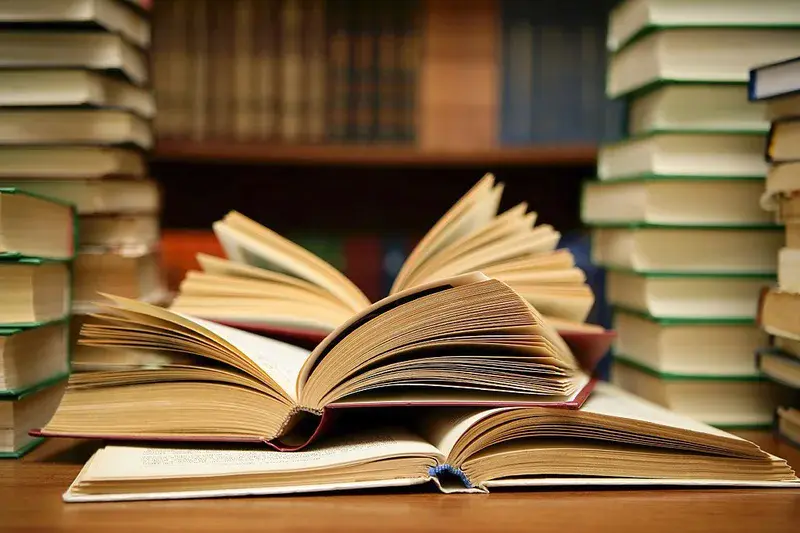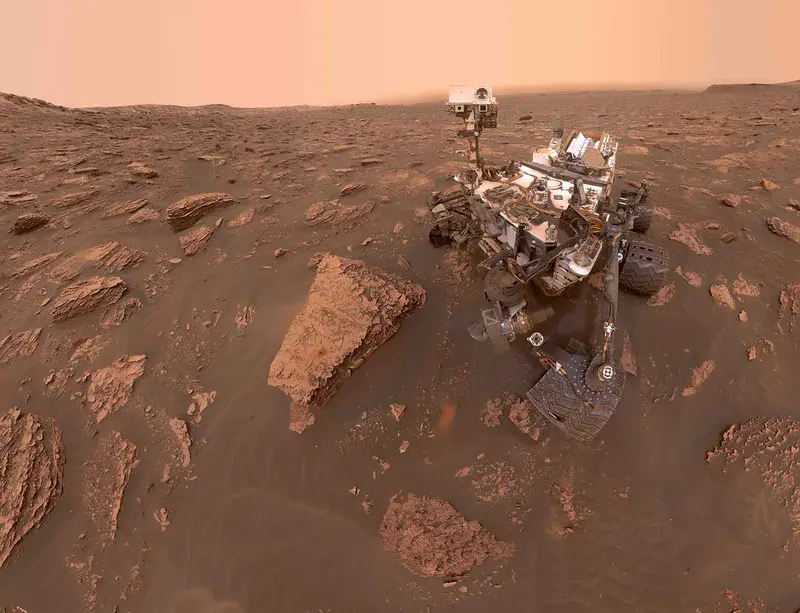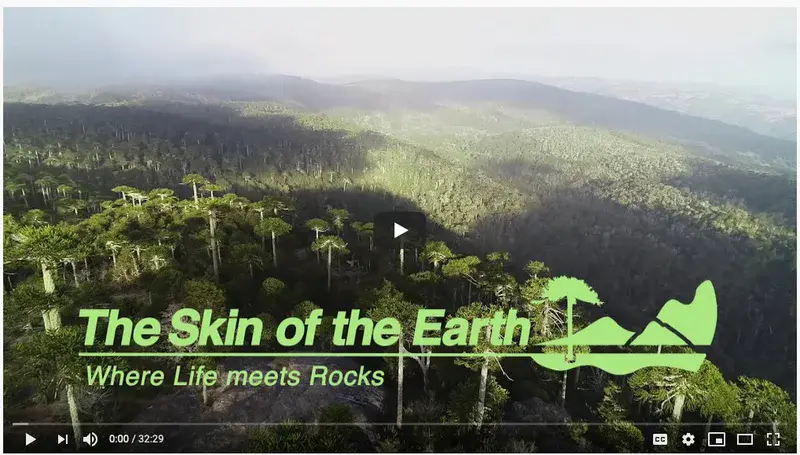
Highlights at a glance
- 08:30 – PS4.2 Mars science and exploration; ITS1.7/SM3.5 Monitoring and On-site Verification for the Comprehensive Nuclear Test Ban Treaty
- 10:45 – GDB3 Cutting carbon in the geosciences; GD1.1 Early Earth: dynamics, geology, chemistry and life in the Archean Earth
- 14:00 – ITS1.11/OS1.14 Addressing scientific and socio-economic challenges in the North Atlantic; OS4.4 Tides of the past, present and future; ITS2.4/HS12.1 From the source to the sea – river-sea systems under global change
- 16:15 – US1 Best practices for scientific integrity and freedom in an age of pandemics – and beyond; EOS9.1 Social science meets geoscience
Welcome message from the EGU President
I am enjoying a positive feeling while I am writing these words to open EGU2020: Sharing Geoscience Online. In my opinion, a positive attitude is the best way to pay a tribute to the persons – including some colleagues and friends – who lost their lives due to COVID-19. It is in their memory that we are looking to the future and making an effort to transform this crisis into an opportunity.
Indeed, the pandemic is a formidable lesson to geoscientists to improve our understanding and management of global threats. It has been particularly significant to me to see the importance of open information to manage the current crisis: sharing data allows humanity to efficiently achieve scientific advances. Openness and transparency – concepts that have always been championed by the EGU – turned out to be essential ingredients.
However, I must say that I am missing a lot my colleagues, the students and all of you EGU members and fellow researchers. So as we go virtual, let’s not forget the great value and inspiration of a physical meeting. For certain activities, science needs the ability to read non-verbal language, face-to face-interactions and smiles. We need to be forward thinkers and adjust while developing new smart forms of networking, without forgetting our past habits and values, to converge to a better world. Thank you for your attendance and your support, I can really feel it. Enjoy EGU 2020!
Alberto Montanari, EGU President

Best practices for scientific integrity and scientific freedom in an age of pandemics – and beyond
Society benefits greatly from scientific research and the subsequent communication of results without concern by the scientist for censorship, intimidation, or political interference. Speakers with a variety of expertises and backgrounds will debate which policies, roles, and responsibilities they view to be most effective to ensure the integrity of science, including freedom to disseminate results and scientific remarks. The session will be an opportunity to focus on the role of – and challenges for – scientific communication, scientific integrity and scientific freedom during the current global crisis triggered by the pandemic. Future perspectives will also be discussed.
US1: LIVE 16:15–18:00
Short courses, networking and early career scientist events
- Short Course 3.3 Rhyme your research – LIVE 16:15–17:30
- Short Course 3.1 Open and FAIR Your Science – Published 12:30, YouTube comment Q&A 12:30-13:45
- Networking: EMRP – The Early Career Scientists of the EMRP division are hosting an online networking event – LIVE 19:00–19:45
Text chats?
EGU2020: Sharing Geoscience Online, the largest-ever virtual geoscience meeting, is an extensive pilot project featuring 700 live text-chat sessions scheduled during the course of the week. To learn how to access or enter the chats and what to expect when you are participating, please watch this short video.

Mars science and exploration
With three rover launches scheduled in 2020, another giant leap in Mars exploration is expected in the next decade. In this session, participants will hear contributions about lessons learned from past/current missions, terrestrial analog studies, laboratory experiments and modelling as well as future exploration and prospects.
PS4.2: Text chats 08:30–12:30
8:30-9:00 From Mars Express to TGO
9:00-9:45 Mars atmosphere and surface processes
9:45-10:15 Current and future instrumentation and missions
10:45-11:20 Recent observations at Mars
11:20-11:55 Current and future instrumentation, missions, and database
11:55-12:30 Mars atmosphere and surface processes
International Monitoring System and on-site verification for the Comprehensive Nuclear Test Ban Treaty, disaster reduction and other applications
The International Monitoring System (IMS) of the Comprehensive Nuclear Test Ban Treaty (CTBT) senses the solid Earth, the oceans and the atmosphere with a global network of seismic, infrasound and hydroacoustic sensors as well as detectors for atmospheric radioactivity. This session will highlight how, in addition to their primary purpose of nuclear explosion monitoring, IMS data are used for many more applications, including disaster risk reduction such as tsunami early warning, earthquake hazard assessment, and volcano ash plume warning as well as radiological emergencies, whale migration and climate change-related monitoring.
ITS1.7/SM3.5 Text chats 08:30–12:30
Early Earth: dynamics, geology, chemistry and life in the Archean Earth
Processes responsible for formation and development of the early Earth (> 2500Ma) are not well understood, reflecting in part the poorly preserved, altered, and incomplete nature of the geological record from this time.This session will feature new approaches and models for the development of Earth’s early crust and mantle and their methods of interaction. The abstracts include a large range of disciplines, including geodynamics, geology, geochemistry and petrology, as well as studies of early atmosphere, biosphere and early life relevant to this period of Earth history.
GD1.1 Text chat 10:45–12:30 and 14:00–15:45
Great Debate: Cutting carbon in the geosciences
Monday’s Great Debate will discuss two activities that currently contribute greatly to geoscientists’ carbon footprints: 1) conference attendance and 2) data acquisition through fieldwork. For the first topic, the debate will focus on the question: what are the advantages and disadvantages of attending conferences in person, which often includes long-range travelling, instead of online streaming the conference? The second topic will focus on the question: with the increasing number of remote observations, should scientists still be travelling long distances for fieldwork?
GDB3 LIVE 10:45–11:45
From the source to the sea – river-sea systems under global change
This session provides a platform for cross-disciplinary science that addresses the continuum of the river and its catchment to the coastal sea. Presentations will answer questions such as: How are river-sea systems changing due to human pressures? What is the impact of processes in the catchment on marine systems function, and vice versa? How can we discern between human-induced changes or those driven by natural processes from climate-induced variability and extreme events? What will the tipping points of socio-ecologic system states be and what will they look like? The increasing demand to jointly enable intensive human use and environmental protection in river-sea systems requires holistic and integrative research approaches with the ultimate goal of enhanced system understanding.
ITS2.4/HS12.1 Text chat 14:00–15:45
Tides of the past, present and future
Tides can cause flooding, particularly in combination with storm surge, and tidal currents and water levels can be both a help and a hindrance to shipping and energy generation. There is a critical role for tides in ocean mixing and the cryosphere, and accurate tide models are required for the processing of remote sensing and satellite geodesy data. This session will focus on modelling of past, present, and future tides, novel methods for tide predictions, advances in instrumentation and data processing, new findings from the analysis of historical tide gauge data, and understanding of secular changes in tides due to sea-level change and other environmental forcing factors. There will be contributions from the natural and applied sciences as well as the humanities and social sciences.
OS4.4 Text chat 14:00–15:45
Interdisciplinary and intercultural approaches for addressing scientific and socio-economic challenges in the North Atlantic region
This session will bring together early-career representatives from a wide range of subdisciplines to demonstrate the strength of an interdisciplinary and intercultural approach when addressing global concerns, such as the dynamic impacts of climate change, focusing on the northern Atlantic.
ITS1.11/OS1.14 Text chat 14:00–15:45
Data Help Desk
Do you have data-related questions? Are you looking to make your data and/or software open and FAIR? Are you interested in tools and resources for working with your data or for finding data to reuse? The Virtual Data Help Desk is here to help you! Tweet your questions throughout the week to #DataHelpDesk or join the live chats today and Friday.
NET2 Text chat Mon 12:45–13:45 and Fri 12:45-13:45
Social science meets geoscience: research at the interface of two disciplines
Today, there is a growing awareness that addressing the global environmental challenges we face requires different disciplines and scientific communities to work together. This session will include contributions from geoscientistsworking with social scientists as well as social scientists working on aspects of geoscience.
EOS9.1 Text chat 16:15–18:00

Movie: The Skin of the Earth
What forms the landscapes of the Earth with its mountains, rivers, soils, the places we live in? Is Earth’s surface shaped when rocks are uplifted by geologic forces, and are then destroyed by rain, ice, and wind; or do plants with their roots, animals that dig into soil and the vast number of microorganisms shape the landscapes? Watch this film, designed and produced by three geoscientists, while live chatting with each other.
NET4 Text chat 18:00-19:15
EGU Photo Competition
We received hundreds of entries for this year’s competition! You can find the ten finalists, and vote for the winners by Thursday evening online. Winners will be announced on Friday on the EGU blog, geolog.egu.eu and the last issue of EGU Today.
What’s on tomorrow
- Risks from a changing cryosphere CR3.1 08:30–10:15
- The future of Earth and planetary observations from space US5 10:45–12:30
- Promoting and supporting equality, diversity and inclusion in the geosciences EOS6.1 10:45–12:30 and 14:00–15:45
- Biogeosciences and wine: the management and the environmental processes that regulate the terroir effect SSS9.3 16:15–18:00
About
EGU Today, the Union’s daily newsletter during Sharing Geoscience Online, helps keep you informed about what’s happening by highlighting sessions and events of broad interest from the programme. The newsletter, including previous issues, is available at https://www.egu.eu/egutoday/.
The Assembly Online
LinkedIn
Instagram
YouTube
Facebook
Mastodon
Bluesky
blogs.egu.eu, geolog.egu.eu
www.egu.eu